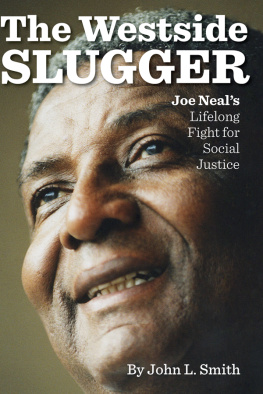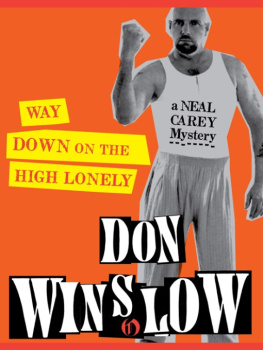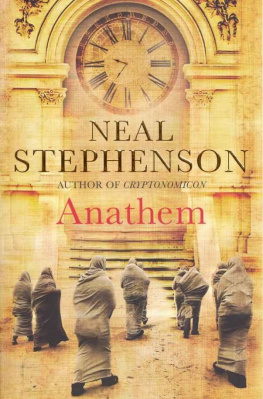WILBUR S. SHEPPERSON SERIES IN NEVADA HISTORY
Series Editor: Michael Green (UNLV)
Nevada is known politically as a swing state and culturally as a swinging state. Politically, its electoral votes have gone to the winning presidential candidate in all but one election since 1912 (it missed in 1976). Its geographic location in the Sunbelt; an ethnically diverse, heavily urban, and fast-growing population; and an economy based on tourism and mining make it a laboratory for understanding the growth and development of postwar America and post-industrial society. Culturally, Nevada has been associated with legal gambling, easy divorce, and social permissiveness. Yet the state also exemplifies conflicts between image and reality: it is also a conservative state yet depends heavily on the federal government; its gaming regulatory system is the envy of the world but resulted from long and difficult experience with organized crime; its bright lights often obscure the role of organized religion in Nevada affairs. To some who have emphasized the impact of globalization and celebrated or deplored changing moral standards, Nevada reflects America and the world; to others, it affects them.
This series is named in honor of one of the states most distinguished historians, author of numerous books on the states immigrants and cultural development, a longtime educator, and an advocate for history and the humanities. The series welcomes manuscripts on any and all aspects of Nevada that offer insight into how the state has developed and how its development has been connected to the region, the nation, and the world.
A Great Basin Mosaic:
The Cultures of Rural Nevada
by James W. Hulse
The Baneberry Disaster:
A Generation of Atomic Fallout
by Larry C. Johns and Alan R. Johns
The Sagebrush State, 5th Edition: Nevadas History, Government, and Politics
by Michael W. Bowers
The Westside Slugger
Joe Neals Lifelong Fight for Social Justice
by John L. Smith
University of Nevada Press | Reno, Nevada 89557 USA
www.unpress.nevada.edu
Copyright 2019 by University of Nevada Press
All rights reserved
Cover art from Debra Reid
Cover design by Matt Strelecki
Photo Gallery from Neal family collection unless otherwise marked.
Photo gallery background winning7799 / Adobe Stock.
LIBRARY OF CONGRESS CATALOGING-IN-PUBLICATION DATA
Names: Smith, John L., 1960- author.
Title: The Westside slugger : Joe Neals lifelong fight for social justice / John L. Smith.
Description: Reno ; Las Vegas : University of Nevada Press, [2019] | Series: Wilbur S. Shepperson Series in Nevada History | Includes bibliographical references. |
Identifiers: LCCN 2018037055 (print) | LCCN 2018041048 (ebook) | ISBN 9781948908047 (ebook) | ISBN 9781948908030 (cloth : alk. paper)
Subjects: LCSH: Neal, Joe, 1935- | Legislators--Nevada--Biography. | African American legislators--Nevada--Biography. | Nevada--Politics and government--20th century. | Social justice--United States--History. | Civil rights--United States--History.
Classification: LCC F845.25.N43 (ebook) | LCC F845.25.N43 S65 2019 (print) | DDC 328.73/092 [B] --dc23
LC record available at https://lccn.loc.gov/2018037055
Manufactured in the United States of America
DEDICATION
To Estelle and Joe, Jan and Prince, Marie and James, Sara and Ralph, Carolyn and Mike, and all those who fought so hard to make Nevada a better place to live.
Foreword
Carson City and several early Nevada mining towns embraced boxing as early as 1897. However, it was Las Vegas, which only became a city in the twentieth century, that emerged as the center of the states boxing culture. Joe Neal, though not a boxer, lived a life that personified the sport at its highest level. Nevadas first African-American state senator is quick, accurate in landing punches, powerful, good on defense and offense, well-conditioned, intelligent, disciplined, and has guts. He is truly the Slugger of the Westside.
From humble beginnings in Mound, Louisiana, Joe Neal migrated to Las Vegas in 1954, the same year that marked the construction of the Moulin Rouge hotel and casino and the arrival of the first black doctor. It was also the same year that the first middle class housing development, Berkley Square, opened for residents. This new neighborhood was financed by African-American attorney Thomas Berkley and featured homes designed by black architect Paul Revere Williams. The burgeoning middle class, composed of people such as Dr. Charles I. West and Joe Neal, joined the movers and shakers of the black World War II migration as the community made ongoing progressive changes. Joe Neals skill sets were needed, and he fit perfectly into the developing young city.
Even before his first run for office, Joe engaged in the political welfare of the Westside community. He worked on the board of the Economic Opportunity Board of Clark County, enforced the 1964 Civil Rights Act as part of his job at Reynolds Electrical and Engineering Company (REECo), worked with Donald Clark as Clark served as president of the local National Association for the Advancement of Colored People, and helped to pass the 1971 consent decree that stipulated 12 percent of jobs in the resort industry go to black workers. In 1972 Joe ran for the Nevada State Senate. He won.
Indeed, the Slugger had found his place for good rumbles with the best in politicsWilliam Raggio, Joe Conforte, Mel Close, Mike OCallaghan, and the list goes on and on. Issues over the years included Howard Hughess discriminatory policies, fair housing, womens rights, reapportionment, increased casino taxes, trade unions, improved fire safety in hotels, and the Lake Tahoe Compact. No issue was too big nor too small for Joe. He tackled the dilemma of pay toilets with the same intensity as the issue of the death penalty for murderers of police officers.
The subject of apartheid and its relationship to tourist dollars for the gaming industry found Joe in a face-to-face meeting with the South African consulate general and then on the Senate floor advocating for a ban on Nevadas investment of public funds in South Africa. Our state monies should not go to any government to enable it to maintain a system which rejects individuals based on the color of their skin. Our money should not go to any government which uses violence to maintain a system of apartheid, a system which would be illegal under our Constitution.
John L. Smith has written an amazingly comprehensive book of the complex life and times of Joe Neal dealing with matters from Mound, Louisiana, to South Africa. Joe fought the good fight always. He stood alone often. During his first term he became known as 19 to 1. He may have stood alone in the beginning, but the underdog prevailed for 32 years in his work for the State of Nevada and for the African-American communities he represented. Joe Neal was always a fearless contender. He waged and won political heavyweight championship bouts.
Claytee D. White, Director,
Oral History Research Center
at UNLV Libraries
Preface
An encouraging word from a dedicated teacher, the lessons of a care-worn textbook deemed not good enough for white schoolchildren, a borrowed shirt fit for a bus ride beyond his insular existence. Of such moments was Joe Neals young life made.
Looking back across the decades, its clear that his long journey from the sharecropped cotton fields of Louisiana to the halls of the Nevada State Senate turned on such barely recognizable kindnesses. With an uncommon tenacity, Neal knotted those humble lengths of rope and climbed from Madison Parish toward the light of opportunity. In a country that advertised equality, Neal appreciated at an early age what most African Americans of his generation eventually learned: that the fortunate and truly blessed might see a real chance for advancement come just once in a lifetime.













